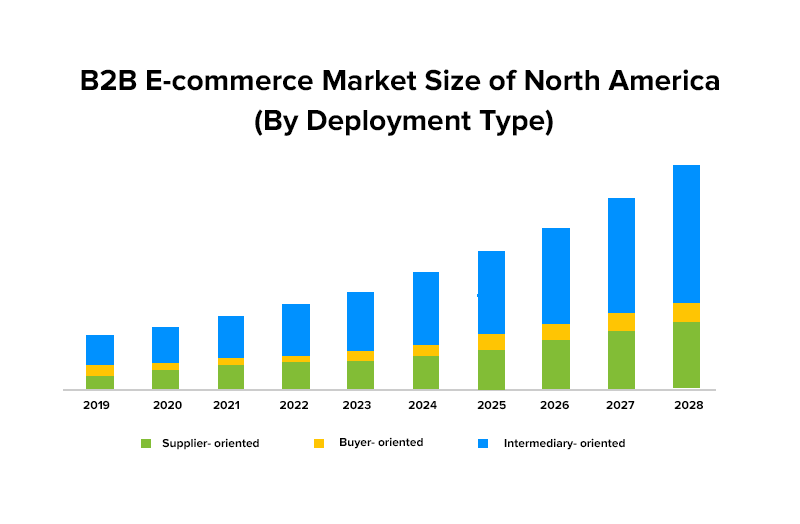Photo Credit-Pixabay Gerd Altmann
For decades, the agriculture industry has left many innovations unexplored. B2B e-commerce, a business-to-business approach connecting firms based on resource needs, represents a significant opportunity for change. Traditionally, producers have focused on selling their produce at farmgate, neglecting opportunities for further value chain development. This lack of forward integration has limited the potential of B2B e-commerce in the agricultural sector.
However, the rise of B2B platforms opens exciting doors for undervalued commodities like green coffee, cashew nuts, Avocado, Cacao beans etc. By fostering transparent and efficient resource exchange between farmers, distributors, and other stakeholders, B2B e-commerce can unlock new markets, improve price transparency, and revolutionize the way agricultural businesses operate.
E-commerce deploys technology as a digital tool to connect buyers and sellers of a target commodity or product. Incorporating e-commerce and B2B places products in reachable positions for buyers and eliminates market-controlled barriers for sellers. The Agricultural commodity supply chain is a complex market due to the variety of products. These varieties range from shelf life to site of production, production systems, existing marketing mechanisms, pricing models, and type of markets all contribute to the cost build-up determining the landing cost of each product. An effective system to remove market barriers and product accessibility barriers will improve the efficiency of the supply chain. B2B e-commerce in addition to being a no-barrier market offers pricing and transatlantic payment flexibility for Agricultural commodities thereby putting Agricultural commodities on a global shelf for trade between buyers and sellers at a standardized monetary value.
The B2B e-commerce market has experienced tremendous adoption over the years, the COVID-19 pandemic created a huge spike in the adoption and implementation of digital technology for the effective deployment of the B2B e-commerce market. The surge in the B2B e-commerce market has had a positive impact on the adoption of innovative borderless solutions in the distribution of Agricultural commodities, creating new profitability models for the Agricultural commodity supply chain.

Figure 1. Forecasted B2B Agri-products e-commerce market distribution (Source: appinventiv.com)
The graph above shows an estimated Agri-product market distribution in North America from 2019 to 2028 indicating an efficient Agricultural commodity supply chain as a driver for the successful deployment of B2B e-commerce in the Agricultural space. This is an indication that the African Agricultural commodity supply chain, if properly harnessed, can integrate and benefit from the booming North America Agricultural commodities supply chain market through the B2B e-commerce market.
Difference between B2B and B2C
B2C (business-to-consumer) ecommerce and B2B (business-to-business) ecommerce are two distinct types of online commerce that cater to different customer segments and have unique characteristics.
B2C e-commerce involves the sale of products or services from businesses directly to individual consumers. It is characterized by a focus on emotional appeal, impulse purchases, and a shorter sales cycle. B2C ecommerce businesses typically use consumer-friendly websites, social media marketing, and targeted advertising to reach their audience.
B2B ecommerce, on the other hand, entails transactions between businesses. It is characterized by a focus on rational decision-making, complex purchasing processes, and longer sales cycles. B2B ecommerce businesses typically use specialized platforms, sales representatives, and industry-specific marketing strategies to engage with their customers.
| Feature | B2C E-commerce | B2B E-commerce |
| Customer | Individual consumers | Businesses |
| Purchase decisions | Emotional, impulse-driven | Rational, research-driven |
| Purchasing process | Simple, one-step | Complex, multi-step |
| Sales cycle | Short | Long |
| Marketing strategies | Consumer-friendly, social media-focused | Specialized, industry-specific |
Table 1: Summary of the key differences between B2C and B2B e-commerce
A B2B ecommerce marketplace has some key features that set it apart from B2C platforms. Here are a few essentials:
- Multiple User Roles: B2B platforms often involve multiple stakeholders within a business. The system should allow for different user roles, such as buyers, sellers, and administrators, each with their own set of permissions.
- Bulk Ordering and Pricing: B2B transactions typically involve larger quantities. The platform should support bulk ordering and provide dynamic pricing based on factors like order volume, customer loyalty, or negotiated contracts.
- Customizable Catalogs: Businesses may have unique needs. The ability to create and manage customized catalogs helps buyers find the products or services that are relevant to their specific requirements.
- Integration with ERP Systems: Integration with Enterprise Resource Planning (ERP) systems streamlines processes by syncing data on inventory, orders, and customer information. This helps businesses manage their operations more efficiently.
- Negotiation and Quote Management: B2B transactions often involve negotiations. The platform should facilitate the exchange of quotes and allow for negotiation between buyers and sellers.
- Payment and Credit Options: B2B transactions might involve more complex payment and credit terms. The platform should support various payment options and credit management features to accommodate the diverse needs of businesses.
- Security and Compliance: Given the sensitivity of business data, a B2B ecommerce platform must prioritize security. Compliance with industry standards and regulations is crucial to build trust among users.
- Order Tracking and Reporting: Businesses need visibility into their transactions. Providing robust order tracking and reporting features helps users monitor their purchases, track deliveries, and analyze their buying patterns.
- Mobile Accessibility: With the increasing reliance on mobile devices, a B2B ecommerce platform should be accessible and user-friendly on various devices to accommodate users who are on the go.
- Collaborative Tools: Incorporate tools like messaging systems, discussion forums, or chat functionalities within the platform, share important documents such as contracts, invoices, and product specifications.. This enables seamless communication between buyers and sellers, fostering collaboration throughout the procurement process.
Current mechanisms for Agricultural commodity supply chain
The Agricultural commodity supply chain is characterized by a high demand for products; however, these products do not get to the sellers efficiently due to the prevailing market conditions which are mainly spearheaded by cross-border logistics and payments. This sector is the most vital for the food industry globally and requires the best operational procedures to manage the distribution of Agricultural commodities along the entire supply chain.
The traditional B2B exchange of products is still the most practiced form of trading, although, quite a lot of firms and farms are fast adopting innovative solutions such as B2B e-commerce to shorten the duration of sourcing for quality Agricultural commodities and agreeing on prices. The pricing mechanisms have also undergone a lot of changes with the advent of sustainable solutions that reduce cost build-up thereby benefiting both the sellers and the buyers.
A critical look at the historical cost build-up of Agricultural commodities shows its significance to the landing cost of Agricultural commodities at the target markets. The minimization of the landing cost creates a better profit flow for farmers who are the primary producers of Agricultural commodities because the cheaper it is to get their products along the supply chain, the better their economic efficiency to be functional actors in the supply chain and the higher the drive to produce more quality harvest to service the Agricultural commodities supply chain.
Agricultural commodities supply is driven by market forces beyond supply and demand, government policies also play vital roles in the movement of Agricultural commodities along the supply chain within and outside a country when there are specific Agricultural commodities allowed for cross-country trade either due to geographical location of production or system of production whether it is sustainable or not. The protection of local producers is also an important policy indicator that guides the cross-border Agricultural commodities supply chain because most government programs and policies prioritize strengthening the local supply chain compared to encouraging the incorporation of international supply chains into their economies. The differences in the technology framework that connects buyers and sellers that are adopted by several economies especially the developed economies favor structured, regulated, and stratified markets supply markets in a B2B Agricultural commodity supply chain.
Why B2B companies need to adopt B2B e-commerce solutions
The global B2B agriculture e-commerce market size was valued at USD 6.64 trillion in 2020 and is expected to increase by 18.7% from 2021 to 2028. North America captured around 14% of the overall B2B agriculture marketplace e-commerce revenue in 2020 (Million insights, 2021). The needed linkage of rural farmers in Africa who produce large quantities of coffee, cocoa or cashew nuts on hectares of acreage to companies processing these into various consumable forms and other complementary products in North America is easily achieved with B2B e-commerce. Agricultural commodities supply forms the basis of all agricultural trades on the e-commerce market and when fully explored between Africa and North America, regional and global market capitalization would greatly increase.

Figure 2. Estimated global e-commerce market capitalization (Source: www.marketingcharts.com)
The graph above shows a promising global market capitalization from 2020 and stresses the need for the deployment of an efficient B2B Agricultural commodities supply chain between Africa and North America to fully tap into the market.
Key reasons why B2B companies need to adopt B2B e-commerce solutions include;
- Increased efficiency and cost savings: B2B ecommerce platforms can automate many manual processes, such as ordering, invoicing, and payment processing, leading to increased efficiency and cost savings for businesses.
- Expanded reach and market access: Online marketplaces and e-commerce platforms provide B2B companies with access to a wider audience, enabling them to reach potential customers beyond their traditional geographical boundaries.
- Improved customer experience: B2B ecommerce solutions can enhance the customer experience by providing self-service options, real-time product information, and personalized recommendations.
- Enhanced data and analytics: E-commerce platforms generate a wealth of data that can be analyzed to gain insights into customer behavior, purchasing trends, and market opportunities.
- Competitive advantage: In today’s digital age, B2B companies that fail to adopt e-commerce solutions risk falling behind their competitors who have embraced online sales channels.
Overall, B2B ecommerce solutions offer a multitude of benefits for businesses, including increased efficiency, expanded reach, improved customer experience, enhanced data insights, and a competitive advantage. As the world continues to move towards a digital-first economy, B2B companies that embrace e-commerce will be positioned for success.
There are several startup companies deploying e-commerce to bridge the market loopholes in the Agribusiness sector across the globe. AGnimble’s innovative approach is poised to simplify the Agricultural commodity sector, driving a fundamental shift in how businesses engage in B2B transactions within this industry. Built with modern technology using a secure cloud infrastructure, AGnimble doesn’t just streamline sales but also introduces a new era of digital inclusivity for all stakeholders in the food and Agricultural commodities domains. With its automated procurement tool and traceable supply chain system, AGnimble ensures precision and transparency in the movement and quality assessment of Agricultural commodities. This initiative marks a significant step towards stratifying and optimizing the Agricultural commodity supply chain, setting a benchmark for B2B interactions in the industry.
Future of B2B e-commerce Agricultural commodity supply chain: Opportunities
The B2B e-commerce Agricultural commodity supply chain is a sector emboldened with opportunities to overcome the decades-old movement of Agricultural commodities across the world, especially between Africa and North America. However, harnessing this opportunity would require an all-inclusive solution that guarantees an efficient B2B e-commerce sector for Agricultural commodities supply due to the complexity of cross-border trades. It also would require certain parameters to be put in place such as efficient and digitalized local and national infrastructure, a simplify cross-border payments process with an effective database to generate data insights and visualizations that serve as guides to balance demand and supply metrics on a modern B2B platform.
B2B e-commerce has emerged as a powerful tool for revolutionizing the Agricultural commodities supply chain, offering a transformative path towards enhanced efficiency and profitability. To fully harness the potential of this digital solution, stakeholders in the Agricultural space should embrace B2B e-commerce platforms, streamlining operations, fostering transparency, and unlocking untapped opportunities for growth and success.
